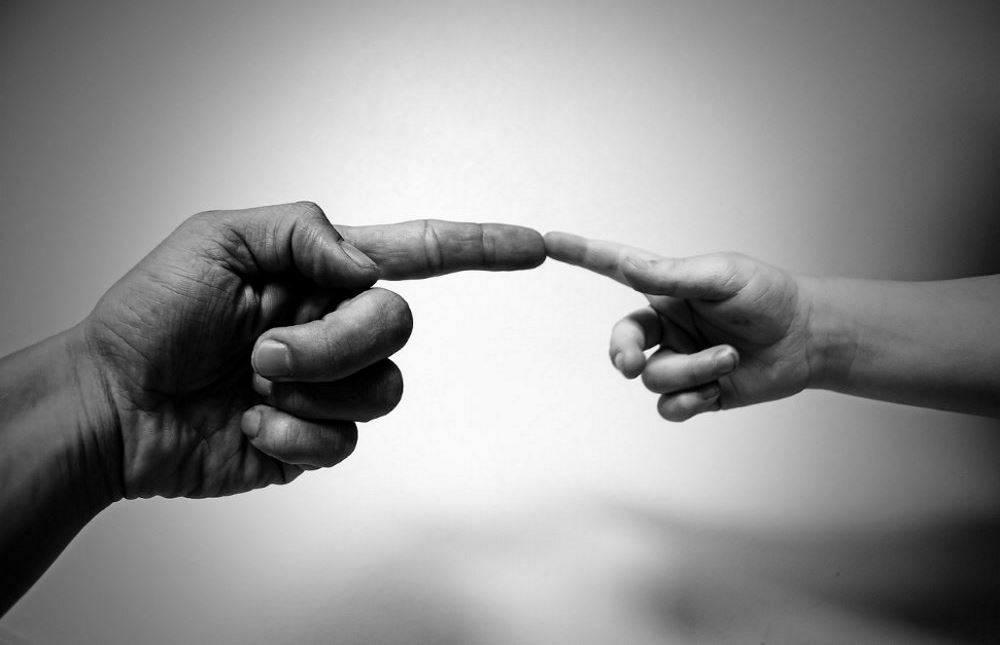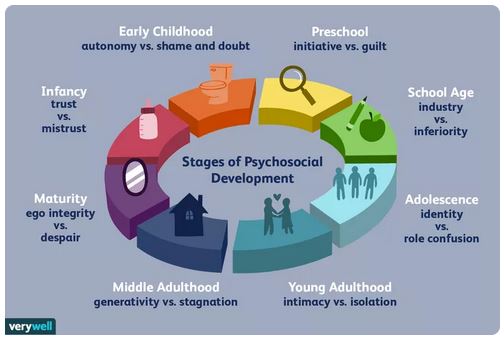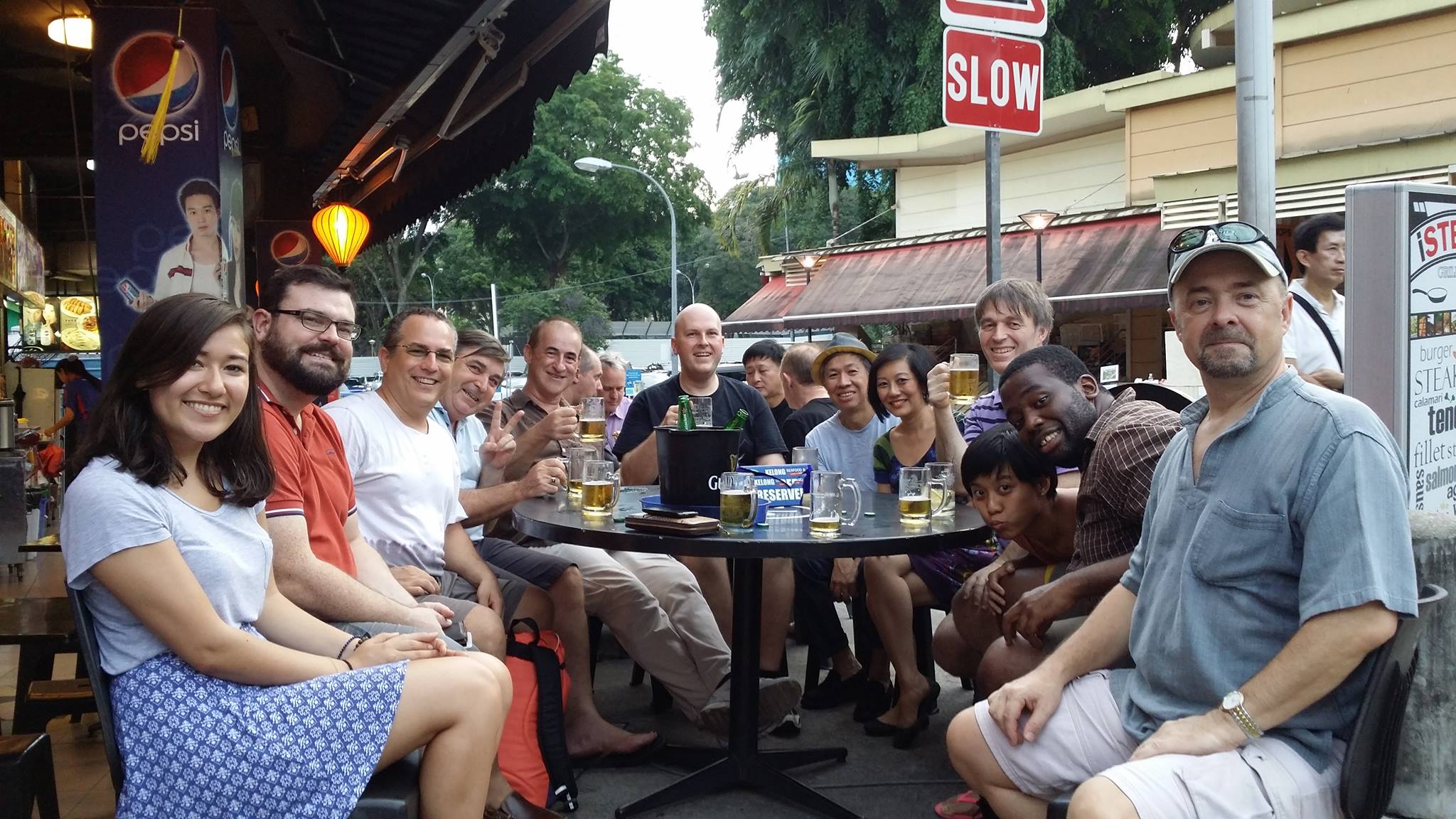Generativity
What Difference Did You Make?
What Impact Will You Leave In The Lives Of Others?

What is Generativity?
Making Your Mark
Generativity occurs when a person shifts his/her energy to care for a change which will help the generations to come.
It can also be seen as ‘making your mark on the world’ by caring for others and accomplishing something beyond yourself for making this world a better place.
Those who practice generativity tend to be physically healthier and live
longer and have lives filled with purpose, productivity and meaning that are engaged in:
- Mentoring
- Volunteering
- Philanthropy
In contrast, people who are stagnant feel low energy and less involvement in both communal and individual affairs. These are people who feel uninvolved or disconnected to a community or wider society.
An Experience Of Generativity
Making A Difference
It was about 11.30pm and I had drunk a few glasses of wine over the course of a long and relaxing evening and I was ready to go to bed when my wife asked me to go and find our teenage daughter and bring her home.
Our daughter Susan* was at the "difficult" stage and my wife and I had repeated arguments about the best way to relate to her. My view was fairly relaxed and my wife's view was more controlling.
Neither of us were right or wrong. Inevitably, and as they things play out in countless other families, we argued until eventually one of us gave in.
Bringing Susan home
I put on my jacket, and started walking up the road to the main street where the bars were in the small market town where we lived to try and locate Susan and persuade her to come home.
At that time I was earning a lot of money and we had a large and lovely house in the very best part of town. Our family was a typical affluent, well educated and prosperous middle-class family.
The infamous Jason...
I hadn't walked very far when I bumped into Susan walking home. There was a young guy aged about 20 with her and I could see at a glance that he was from "the other side of the tracks" and then I realised that this was the infamous Jason* she had told us about.
From the snippets of previous conversations with Susan and from my own prior inquiries with a mutual friend I knew that Jason came from a broken family who lived on welfare, he had a dead end job and existed on the fringes, in that twilight zone of drugs and minor criminality that exists in so many towns in the UK.
To my shame I was rude and abusive
I was so relieved to find her and so angry with my wife for forcing me to go out when I just wanted to go to bed, and also to be honest I was a little drunk from the wine I had drunk earlier, and to my eternal shame and discredit I shouted at my daughter and was then verbally rude and abusive to Jason and told him to go away and leave my daughter alone.
We returned home and I went to bed. I woke up in the early of hours of the morning and experienced a moment of shattering clarity. I realised instantly that I had behave badly. But it was more than that.
"This could be a turning point...this could make a big difference in that young man's life"
I had this very strong sense of an inner voice saying:
"This could be a turning point in that young man's life, this could make a big difference , go and apologise to him and welcome him into our family, treat like a son..."
...and that is exactly what I did later that morning.
I got Jason's number from Susan and I texted him and apologised for my bad behaviour and told him he was most welcome to our house and invited him to join us later that day for a meal.
Becoming a member of the elite special forces
Fast forward a few years and Jason and I became good friends, and with a little support and encouragement, Jason transformed himself and his life. He got himself educated and joined the British army where he progressed up through the ranks rapidly becoming a member of the elite special forces serving on several tours of active service in war-zones where the UK had military presence.
Looking back over the past 20 years, I now realise that this was first time in my life when, aside from being a parent, I had a strong and powerful urge to practice generativity. As I get older this inclination gets stronger and there are now many situations where I have acted upon it and still continue to do so.
[*Names have been changed for privacy.]
The Origin of Generativity
Generativity has been defined as the propensity and willingness to engage in acts that promote the well being of younger generations as a way of ensuring the long-term survival of the species. [The Psychology of Mattering]
Erikson's 8 Stages Of Development
The word was first used by Erik Erikson [1902–94] who was a German-American developmental psychologist and psychoanalyst known for his theory on psychological development of human beings leading to what has become known as "Erikson’s Psychosocial Stages of Development".
The 7th Stage Of Development
Each of eight stages of development involved a conflict of opposing possibilities. Erikson's model suggests that during the 7th stage of development occurring duing the middle to later years between ages 40 and 60 generativity is an important aspect of the psychology of human beings and it extends beyond imperatives of parenthood.
The Conflict Between Generativity and Stagnation
The conflicting possibilities at this stage are, according to Erikson, between generativity and stagnation - between the drive to leave some lasting change that will benefit other [younger] people after your death and the lethargy, cynicism and general world weariness of just not caring.

Generativity - Life Purpose And The Meaning Of Life
In the Meaning Of Life we start with the premise that the meaning of life is a matter of choice - it is entirely whatever you choose it to be.
We explored this theme further in What Is My Life Purpose and noted that as we progress through life rather than the 8 stages proposed by Erikson there is a simpler model which proposes 3 stages that are not age dependent but reflect a development of maturity.
- Uncovering - your personal individual contribution, this is all about figuring out how and where you fit with your offering to the world.
- Discovering - this is about developing realization that the world is about more than just you and your success and your abilities, it's collaborative, and the growing understanding that your greatest achievement and fulfillment comes from "us" rather than just "me".
- Rediscovery -this is the stage where you move into the holistic view and start to see and participate in the greater whole. You grow in wisdom as you see more of the bigger picture, and this is accompanied with the realization and experience that we are tribal creatures living in an interconnected world, and following on from that an increasing engagement with generativity.
Shantideva And The Race Horse

Shantideva was an 8th-century CE Indian philosopher, Buddhist monk, poet and scholar at the university at Nalanda.
Shantideva
is particularly renowned as the author of what has become known as "A
Guide to the Bodhisattva's Way of Life" or "Entering the Path of
Enlightenment."
It is a long poem describing the end to end process of enlightenment and it is still referenced by Buddhist practitioners.
There is one line that I first heard about 15 years ago and it has stuck in mind ever since and it is this:
How I Rediscovered My Life Purpose Sitting In A Bar In Singapore...

I hadn't considered the 'what is my life purpose question' for sometime when I rediscovered it sitting in a bar in Singapore a while ago with a bunch of expat friends enjoying some beers and a chat.
The conversation took an
interesting turn when one of them suddenly asked the group:
"If
you knew you were going to die tonight and you were given a few minutes
to reflect before that happened, what would you say was the meaning of
your life?"
On hearing that question I suddenly had a
moment of clarity and I realised that for me the answer to the 'what is
my life purpose question' was (and remains):
Generativity - A Challenge
Further reading:
Asking yourself: "What is my life purpose?" is one of the most important questions you will ever ask. It cuts straight to the heart of who you are and why you are here.
"We are more united and have far more in common with each other, than things that which divides us." These words were spoken by UK MP Jo Cox in her maiden speech to Parliament in 2015. One year later she was murdered and her words went viral. Millions of people across the country realised that Jo was speaking for them.
To be the light at the end of someone else's tunnel of darkness means to offer hope, encouragement, kindness and compassion to someone else who needs it, and by doing this you are igniting and fueling the flame that shines at the end of your tunnel, and that will illuminate your darkness.
Research has also suggested that highly generative American adults tend
to construct self-defining life stories (narrative identities) that
feature the psychological theme of redemption—the deliverance from
suffering to an enhanced status or position in life.
We can nourish our souls by transforming everyday practices―eating together, working out, reading, taking a walk―into sacred rituals that can heal our crisis of social isolation and longing for connection.
Introducing "The Balanced Toolkit" Approach To Life
This website and all the material on it, is my attempt to put something back. This is my attempt, in some small way, to offer the guidance and mentoring that I always sought and never found.
Next Article: Compassion Is Selfish And You Need It
Return from "What Difference Did You Make" to: Walking The Talk
Or to: The Meaning Of Life
LATEST ARTICLES
The Inner Weight of Shame - Sustained By Attentional Fixation
 A Mind That Is Continuously Engaged In Self-Surveillance. Shame is one of the heaviest inner burdens a human being can carry. It does not announce itself loudly or demand attention through drama. Inst…
A Mind That Is Continuously Engaged In Self-Surveillance. Shame is one of the heaviest inner burdens a human being can carry. It does not announce itself loudly or demand attention through drama. Inst…Does Prayer Work? The Psychology of Prayer, Meditation and Outcomes
 Reality Is A Complex System Of Countless Interactions - Including Yours. So does prayer work? The problem is that the question itself is usually framed in a way that guarantees confusion. We tend to a…
Reality Is A Complex System Of Countless Interactions - Including Yours. So does prayer work? The problem is that the question itself is usually framed in a way that guarantees confusion. We tend to a…Living in Survival Mode Without Surrendering Mental Authority
Living in Survival Mode Without Surrendering Mental Authority
 Clear Thinking When You’re Just Trying to Stay Afloat. Many people today are overwhelmed because they are living in survival mode - not temporarily, but as a persistent condition of life. For many, th…
Clear Thinking When You’re Just Trying to Stay Afloat. Many people today are overwhelmed because they are living in survival mode - not temporarily, but as a persistent condition of life. For many, th…Manifestation Without Magic: A Practical Model
 Manifestation without magic is not a softer or more intellectual version of popular manifestation culture. It is a different model altogether. Popular manifestation teachings tend to frame reality as…
Manifestation without magic is not a softer or more intellectual version of popular manifestation culture. It is a different model altogether. Popular manifestation teachings tend to frame reality as…Staying Committed When You Can't See Progress - The Psychology of Grit
 Uncertainty Is Not The Absence Of Progress, Only The Absence Of Reassurance. One of the most destabilising experiences in modern life is not failure, but uncertainty and staying committed when you can…
Uncertainty Is Not The Absence Of Progress, Only The Absence Of Reassurance. One of the most destabilising experiences in modern life is not failure, but uncertainty and staying committed when you can…The Battle For Your Mind - How To Win Inner Freedom In A Digital Age Of Distraction
 From External Events to Inner Events. We often think of “events” as things that happen out there: the traffic jam, the rude comment, the delayed email reply. But what truly shapes our experience is wh…
From External Events to Inner Events. We often think of “events” as things that happen out there: the traffic jam, the rude comment, the delayed email reply. But what truly shapes our experience is wh…How to See Your Thoughts Without Becoming the Story
 A Practical Guide to Thought-Awareness. You can spend your life inside the stories of your mind without ever learning how to see your thoughts clearly and objectively. Most of the stuff we tell oursel…
A Practical Guide to Thought-Awareness. You can spend your life inside the stories of your mind without ever learning how to see your thoughts clearly and objectively. Most of the stuff we tell oursel…The Collison Decision Matrix - A Simple Framework for Better Choices
 The Collison Decision Matrix Is A Practical Everyday Thinking Tool. Most of us spend a surprising amount of time worrying about decisions. From small ones such as what to wear, what to eat, what to te…
The Collison Decision Matrix Is A Practical Everyday Thinking Tool. Most of us spend a surprising amount of time worrying about decisions. From small ones such as what to wear, what to eat, what to te…The Power Of Asking The Right Question
 The Power Of Asking The Right Question Lies In The Quest For Insight. To experience the power of asking the right question you must develop the practice of asking questions. The best way to improve th…
The Power Of Asking The Right Question Lies In The Quest For Insight. To experience the power of asking the right question you must develop the practice of asking questions. The best way to improve th…Site Pathways
 Here is a site pathway to help new readers of Zen-Tools navigate the material on this site. Each pathway is based around one of the many key themes covered on this site and contain a 150 word introduc…
Here is a site pathway to help new readers of Zen-Tools navigate the material on this site. Each pathway is based around one of the many key themes covered on this site and contain a 150 word introduc…How To Live With Contradiction - Beyond Thought Let Stillness Speak
 A major impact on so many peoples' lives is the situational contradiction of unfilled realistic expectations. So where does all this leave us? Well here we are, with mental equipment that is more lim…
A major impact on so many peoples' lives is the situational contradiction of unfilled realistic expectations. So where does all this leave us? Well here we are, with mental equipment that is more lim…